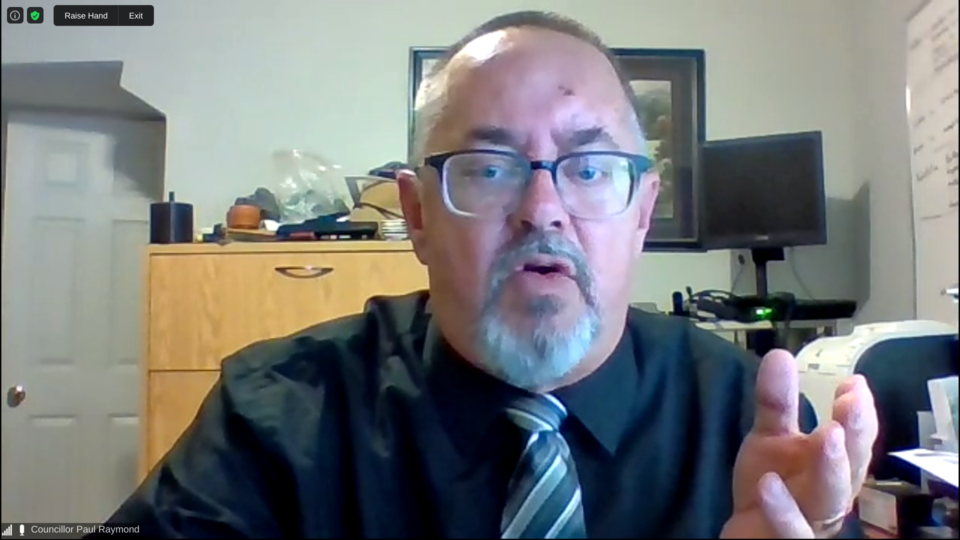Let's not forget Tay's smaller settlements, residents say as the township considers the fate of council composition and the ward system.
"I'm concerned about the ward system," said Donna Boudreau, a Victoria Harbour resident. "Mostly because of Port McNicoll. It gets looked over for everything. If we stick with the ward system, there would be someone elected from it, but if it were to go at-large, there would be no one. Look at Waverley now, nobody represents them right now."
Waverley resident, Mathew Lund agreed.
"Waverley's been ignored right from the get go," he said. "The problem with the current boundaries is that they have two people representing Port McNicoll, which includes Waverley and all the rural space in between. Because Port McNicoll is where all the population is that's where people get elected from."
Where Boudreau didn't have any opinion about a ward boundary review, Lund thought that would be the best way of getting his small hamlet some representation on council.
"I think that would be the best way to get actual representation throughout the entire township," said Lund. "An at-large system will ignore the rural community and places like Waverley. If you move to an at-large system, you'll get more people from Victoria Harbour, and that way Waubaushene and Port will also be ignored."
Both township residents were of the opinion that council size doesn't matter if representation is equal and effective.
"It would be cheaper, I'm sure, for the township not to have so many councillors," said Boudreau. "It depends on who those people are for them to be effective."
Opinion around the council table was a bit more mixed.
"My preferred option is to go back to a five-member council," said Coun. Barry Norris. "As a councillor, you look at what's the difference from going from nine to seven and to five. There is no difference."
The veteran councillor said he was in support of an at-large election.
"As a representiative of this muncipality, I represent the whole municipality," noted Norris.
Contrarily, Coun. Paul Raymond said he supports the ward system.
"Geographically speaking, we're different than most other systems," he said. "We have Victoria Harbour, rural areas, Waubaushene, Port McNicoll and Waverley, which wasn't mentioned by our clerk (in the staff report part of this week's council agenda). That tells you how easy it is to forget some people."
Raymond also disagreed with Norris on council size.
"The nice thing about seven is that we all come from different backgrounds, seasoned politicians and otherwise," Raymond said. "It makes for interesting conversations. It alows us to think outside the box. When you thin the herd out, you reduce the amount of opinions and end up with marginal differences of opinion."
Coun. Mary Warnock backed Raymond's call on council size.
"It allows you to sit on all the committees we're required to sit on," Warnock. "It allows you to be active in the community. A lot of times we have councillors missing, and a five-member council would affect that."
She said she didn't think Tay is ready for moving to an at-large system.
"I wouldn't mind it, but I don't think our residents are ready for it," said Warnock. "They still think of individual hamlets and not Tay. They would feel under-represented if all councillors came from one area through an at-large vote."
Lund said he could see that being true.
"If they put a little bit of emphasis on the smaller communities, then people just might have the tendency to be a bit more active," he said.
Coun. Sandy Talbot said she was in support of keeping the current system.
"I think if it's not broken, don't fix it," she said. "People in our neighbourhoods know who we are and they don't mind approaching us on the street or at the grocery store. The accessibility we represent works well within our township and I don't want to see that broken."
Other voices also joined in to express their differing positions, however, one matter they were all united on was the importance of public consulation.
"I don't understand the staff recommendation, to be honest," said Norris, talking about the staff recommendation to stick with the status quo. "This isn't a decision of the staff. This isn't a decision of council."
Raymond concurred with his peer.
"This should be resident driven not council driven," he said. "I think we should reach out to residents and allow them to provide some feedback. We should get input from the residents before we take any kind of action."
The discussion concluded with council asking staff to gather public feedback on the matter through both traditional and digital means.
